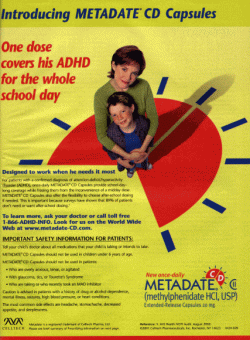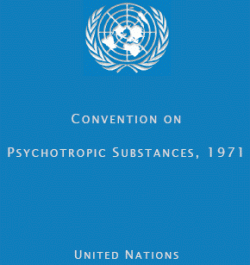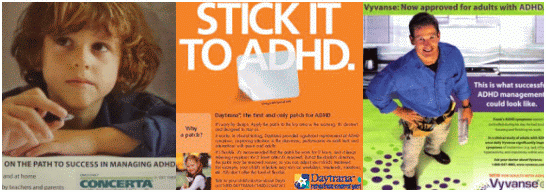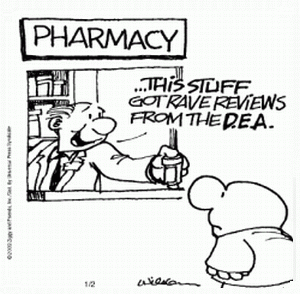
Click image for full-size view of ad.
Introducing METADATE CD Capsules
One dose covers his ADHD for the whole school day
History was made and international law openly defied with the publication of this ad in magazines like Ladies' Home Journal, Parade and Redbook in 2001, the first time that a highly-addictive Schedule II controlled substance (methylphenidate) was advertised directly to the general public in flagrant violation of the United Nations Convention on Psychotropic Substances.
Ratified in 1971 and signed by 175 countries including the United States, selected portions of the U.N. treaty are copied below.

Article 1. USE OF TERMS
"Psychotropic substance" means any substance, natural or synthetic, or any natural material in Schedule I, II, III or IV.
Article 10. WARNINGS ON PACKAGES, AND ADVERTISING
2. Each Party shall, with due regard to its constitutional provisions, prohibit the advertisement of such substances to the general public.
Article 22. PENAL PROVISIONS
1(a). Subject to its constitutional limitations, each Party shall treat as a punishable offence, when committed intentionally, any action contrary to a law or regulation adopted in pursuance of its obligations under this Convention, and shall ensure that serious offences shall be liable to adequate punishment, particularly by imprisonment or other penalty of deprivation of liberty.
Article 23. APPLICATION OF STRICTER CONTROL MEASURES THAN THOSE REQUIRED BY THIS CONVENTION
A Party may adopt more strict or severe measures of control than those provided by this Convention if, in its opinion, such measures are desirable or necessary for the protection of the public health and welfare.

In August 2001, the DEA sent a cease-and-desist letter to Metadate's manufacturer, Celltech Pharmaceuticals, complaining that direct-to-consumer advertising of a controlled substance "might well be contrary to the public interest." Through a Freedom of Information request, the Institute for Nearly Genuine Research has obtained a copy of the DEA's amazing letter, which may be viewed here.
Electing to neither cease nor desist, Celltech refused to pull the ad. The Bush Administration chose not to pursue the matter any further, opening the floodgates for other drug companies to follow. The rest is history. Witness the widespread use of psychotropic medication including neuroleptics like Abilify, Risperdal, Seroquel and Zyprexa among American youth (even toddlers) today.
Schedule II controlled substances
advertised directly to consumers:
Concerta, Daytrana & Vyvanse.

